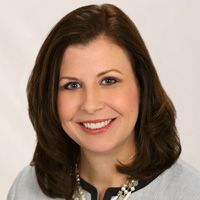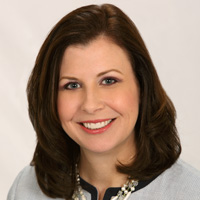Sandwich Generation: How Do You Decide Whose Needs Come First?
Your parents need your help right now, and so do your adult kids. But what about saving for your own retirement? If you’re stressed and stretched, it’s time to prioritize. Here’s where to start.


Profit and prosper with the best of Kiplinger's advice on investing, taxes, retirement, personal finance and much more. Delivered daily. Enter your email in the box and click Sign Me Up.
You are now subscribed
Your newsletter sign-up was successful
Want to add more newsletters?

Delivered daily
Kiplinger Today
Profit and prosper with the best of Kiplinger's advice on investing, taxes, retirement, personal finance and much more delivered daily. Smart money moves start here.

Sent five days a week
Kiplinger A Step Ahead
Get practical help to make better financial decisions in your everyday life, from spending to savings on top deals.

Delivered daily
Kiplinger Closing Bell
Get today's biggest financial and investing headlines delivered to your inbox every day the U.S. stock market is open.

Sent twice a week
Kiplinger Adviser Intel
Financial pros across the country share best practices and fresh tactics to preserve and grow your wealth.

Delivered weekly
Kiplinger Tax Tips
Trim your federal and state tax bills with practical tax-planning and tax-cutting strategies.

Sent twice a week
Kiplinger Retirement Tips
Your twice-a-week guide to planning and enjoying a financially secure and richly rewarding retirement

Sent bimonthly.
Kiplinger Adviser Angle
Insights for advisers, wealth managers and other financial professionals.

Sent twice a week
Kiplinger Investing Weekly
Your twice-a-week roundup of promising stocks, funds, companies and industries you should consider, ones you should avoid, and why.

Sent weekly for six weeks
Kiplinger Invest for Retirement
Your step-by-step six-part series on how to invest for retirement, from devising a successful strategy to exactly which investments to choose.
Squashed, spread too thin, nothing left. This is not how you want your lunch described, but for those who are part of the “sandwich generation,” these descriptions are all too accurate.
The sandwich generation is defined as those who are caught in the middle of both parents and children who rely on them for financial, physical and emotional support. During the COVID-19 pandemic, record numbers of adult children are moving back home while elderly parents may need more care, leaving those in the middle to make difficult choices between saving for their own retirement, funding education or living expenses for children, and paying for the health care needs of aging parents.
Who is in this sandwich generation? The burdens and responsibilities of middle-aged Americans is increasing. Nearly half (47%) of adults in their 40s and 50s have a parent aged 65 or older, and are either raising a young child or financially supporting a grown child age 18 or older, according to a nationwide Pew Research study. Adults who are supporting multiple family members report that this assistance has a significant impact on their own financial well-being. Among those who are providing financial support to an aging parent and supporting a child of any age, 28% say they live comfortably, 30% say they have enough to meet their basic expenses with a little left over for extras, 30% say they are just able to meet their basic expenses, and 11% say they don’t have enough to even meet their basic expenses. And if adults are not caring for their parents now, nearly 7 in 10 of the people surveyed said they expected to do so in the future.
From just $107.88 $24.99 for Kiplinger Personal Finance
Become a smarter, better informed investor. Subscribe from just $107.88 $24.99, plus get up to 4 Special Issues

Sign up for Kiplinger’s Free Newsletters
Profit and prosper with the best of expert advice on investing, taxes, retirement, personal finance and more - straight to your e-mail.
Profit and prosper with the best of expert advice - straight to your e-mail.
If you are in the sandwich generation, and are providing financial, emotional or physical care to an aging parent, it is likely that you have thought about how you will want to be cared for in the future. I commonly hear from my clients that they want to make sure that they are not a burden to their children. But if your finances are being strained by the caregiving needs of your own parents and gifting to your adult children for their living expenses now, how are you supposed to be able ensure your own future financial independence at the same time? How do you decide whose needs come first?
Your top priority should be your own retirement
There are options for elder care and for financing educational needs for children … but there are not many safety nets for your own retirement. In this case, you are not being selfish by putting your own needs first – in fact, you are making it possible for you to help your family members by being financially stable yourself.
Tips for making sure you that you are on solid financial footing for your own retirement savings:
- Work with your financial adviser to develop a game plan to hit your retirement savings goal. If you are in the sandwich generation, you may decide that you are willing to trim some of your lifestyle expectations to help your loved ones, but you need to be honest about what your needs are and plan accordingly.
- Fully fund your retirement plan options. Make sure you are realizing the benefits of tax-advantaged employer 401(k) plans (especially if your employer has a matching benefit) or IRA accounts. Consider using a Roth IRA if you qualify under the income limits or fund an investment account as your retirement nest egg.
- Consider whether purchasing long-term care insurance is right for your situation. Your financial adviser will be able to help you evaluate whether you want to invest in a policy now to help pay for your future care needs.
Next, look at options to help your parents
Once you have covered your own retirement planning, next review the options for elder care needs:
- Review all the assets available for your parents’ support. Consider if you can sell or use the equity in your parents’ home to pay for care needs. If your parents are able to remain in their home, a reverse mortgage can be an option to utilize the equity in a home to provide cash flow for expenses.
- If there are not adequate assets, consult with a financial adviser to determine whether your parent is eligible for state benefits, like Medicaid, or additional benefits that might be available for retired union, government, railroad or military employees.
- Consider flexible caregiving with other family members. One of my clients trades off having her mother and aunt, who are not able to live alone any longer, live with her four months at a time, and then her cousin covers the next four months to give a break to each caregiver throughout the year.
When that’s squared away, you can concentrate on the kids
Next, review ways to provide assistance to your children:
- If you have minor children who you want to help pay for college, consider whether a 529 savings plan is a good option. Some states provide tax advantages for saving in 529 plans, and other family members can gift funds for the benefit of your children as well.
- College loans are also available. Current interest rates are very low, making college loans attractive for financing education expenses. Make sure your adult child understands their repayment responsibilities, including the options for loan forgiveness based on occupational choices like public service. It is understandable that you may want to have your child graduate from college debt-free, but keep in mind that retirement loans are not available, so financing a college education is often a good choice in favor of funding your retirement adequately.
- If you have an adult child who is saving money for a large expense, such as a wedding or a home purchase, consider whether having them move back home is a reasonable option to give them a boost to their savings account by eliminating rent payments.
There is a reason that the safety briefing on an airplane provides instructions specifying that, in case of an emergency, you should put on your own oxygen mask first before helping others around you. For the sandwich generation, you need to evaluate your own financial needs before you can assist other family members. Your financial adviser can give you good advice for options available to pay for elder care and assistance to your children while still achieving your own retirement goals, leaving you the emotional and physical energy to continue to care for your loved ones without being crushed in the middle of the sandwich of competing needs.
The CDFA® mark is the property of The Institute for Divorce Financial Analysts, which reserve sole rights to its use, and is used by permission.
Certified Financial Planner Board of Standards Inc. (CFP Board) owns the CFP® certification mark, the CERTIFIED FINANCIAL PLANNER™ certification mark, and the CFP® certification mark (with plaque design) logo in the United States, which it authorizes use of by individuals who successfully complete CFP Board’s initial and ongoing certification requirements.
Mercer Advisors Inc. is the parent company of Mercer Global Advisors Inc. and is not involved with investment services. Mercer Global Advisors Inc. (“Mercer Advisors”) is registered as an investment adviser with the SEC. Content, research, tools and stock or option symbols are for educational and illustrative purposes only and do not imply a recommendation or solicitation to buy or sell a particular security or to engage in any particular investment strategy. Past performance may not be indicative of future results. All expressions of opinion reflect the judgment of the author as of the date of publication and are subject to change. Some of the research and ratings shown in this presentation come from third parties that are not affiliated with Mercer Advisors. The information is believed to be accurate, but is not guaranteed or warranted by Mercer Advisors.
Profit and prosper with the best of Kiplinger's advice on investing, taxes, retirement, personal finance and much more. Delivered daily. Enter your email in the box and click Sign Me Up.

Kara Duckworth is the Managing Director of Client Experience at Mercer Advisors and also leads the company’s InvestHERs program, focused on providing financial planning to serve the specific needs of women. She is a CERTIFIED FINANCIAL PLANNER and Certified Divorce Financial Analyst®. She is a frequent public speaker on financial planning topics and has been quoted in numerous industry publications.
-
 Quiz: Do You Know How to Avoid the "Medigap Trap?"
Quiz: Do You Know How to Avoid the "Medigap Trap?"Quiz Test your basic knowledge of the "Medigap Trap" in our quick quiz.
-
 5 Top Tax-Efficient Mutual Funds for Smarter Investing
5 Top Tax-Efficient Mutual Funds for Smarter InvestingMutual funds are many things, but "tax-friendly" usually isn't one of them. These are the exceptions.
-
 AI Sparks Existential Crisis for Software Stocks
AI Sparks Existential Crisis for Software StocksThe Kiplinger Letter Fears that SaaS subscription software could be rendered obsolete by artificial intelligence make investors jittery.
-
 Social Security Break-Even Math Is Helpful, But Don't Let It Dictate When You'll File
Social Security Break-Even Math Is Helpful, But Don't Let It Dictate When You'll FileYour Social Security break-even age tells you how long you'd need to live for delaying to pay off, but shouldn't be the sole basis for deciding when to claim.
-
 I'm an Opportunity Zone Pro: This Is How to Deliver Roth-Like Tax-Free Growth (Without Contribution Limits)
I'm an Opportunity Zone Pro: This Is How to Deliver Roth-Like Tax-Free Growth (Without Contribution Limits)Investors who combine Roth IRAs, the gold standard of tax-free savings, with qualified opportunity funds could enjoy decades of tax-free growth.
-
 One of the Most Powerful Wealth-Building Moves a Woman Can Make: A Midcareer Pivot
One of the Most Powerful Wealth-Building Moves a Woman Can Make: A Midcareer PivotIf it feels like you can't sustain what you're doing for the next 20 years, it's time for an honest look at what's draining you and what energizes you.
-
 I'm a Wealth Adviser Obsessed With Mahjong: Here Are 8 Ways It Can Teach Us How to Manage Our Money
I'm a Wealth Adviser Obsessed With Mahjong: Here Are 8 Ways It Can Teach Us How to Manage Our MoneyThis increasingly popular Chinese game can teach us not only how to help manage our money but also how important it is to connect with other people.
-
 Looking for a Financial Book That Won't Put Your Young Adult to Sleep? This One Makes 'Cents'
Looking for a Financial Book That Won't Put Your Young Adult to Sleep? This One Makes 'Cents'"Wealth Your Way" by Cosmo DeStefano offers a highly accessible guide for young adults and their parents on building wealth through simple, consistent habits.
-
 Global Uncertainty Has Investors Running Scared: This Is How Advisers Can Reassure Them
Global Uncertainty Has Investors Running Scared: This Is How Advisers Can Reassure ThemHow can advisers reassure clients nervous about their plans in an increasingly complex and rapidly changing world? This conversational framework provides the key.
-
 I'm a Real Estate Investing Pro: This Is How to Use 1031 Exchanges to Scale Up Your Real Estate Empire
I'm a Real Estate Investing Pro: This Is How to Use 1031 Exchanges to Scale Up Your Real Estate EmpireSmall rental properties can be excellent investments, but you can use 1031 exchanges to transition to commercial real estate for bigger wealth-building.
-
 Should You Jump on the Roth Conversion Bandwagon? A Financial Adviser Weighs In
Should You Jump on the Roth Conversion Bandwagon? A Financial Adviser Weighs InRoth conversions are all the rage, but what works well for one household can cause financial strain for another. This is what you should consider before moving ahead.